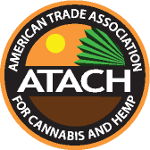Following the 2018 Farm Bill, North Carolina implemented a regulatory framework for hemp intoxicants, including synthetic cannabinoids like Delta-8 THC. This framework, specific to hemp products, establishes health and safety standards for synthetic THC without fully integrating these products into the state’s cannabis regulatory system.
1. State’s Classification Regarding Hemp Intoxicants
North Carolina regulates hemp intoxicants including synthetic THC within a hemp-specific framework, permitting synthetic cannabinoids while enforcing safety and labeling requirements distinct from the state’s cannabis regulations. The state does not classify these products as controlled substances, setting them apart from traditional cannabis regulations.
2. THC Potency Limits Per Serving or Package for Hemp Intoxicant Products
North Carolina does not currently impose specific potency limits per serving or package for synthetic THC products, though all hemp-derived products must comply with the federal limit of 0.3% Delta-9 THC by dry weight.
3. Public Health Measures
North Carolina has implemented several public health measures for hemp-derived intoxicants:
- Child-Resistant Packaging: Required for all synthetic THC products.
- Labeling Requirements: Clear labeling to indicate THC content, serving sizes, and health warnings.
- Marketing Restrictions: Prohibits packaging that could appeal to minors, including candy-like packaging and flavors.
4. Health Incidents Related to Hemp Intoxicants
North Carolina has reported health incidents involving synthetic THC, including accidental ingestions by minors leading to hospitalizations. These have raised public health concerns and an increased focus on responsible marketing and labeling.
5. Primary Enforcement Mechanisms Against Unregulated or Illegal Sales
The North Carolina Department of Agriculture enforces compliance with labeling and safety standards for synthetic THC products, conducting retailer inspections and product seizures as necessary. Local law enforcement supports state efforts in cases involving mislabeling or marketing violations.
6. Responsible State Agencies
The North Carolina Department of Agriculture oversees the regulation of synthetic THC products, including licensing, monitoring, and safety compliance. This department works with health agencies and law enforcement to enforce regulations and ensure adherence to state safety guidelines.
